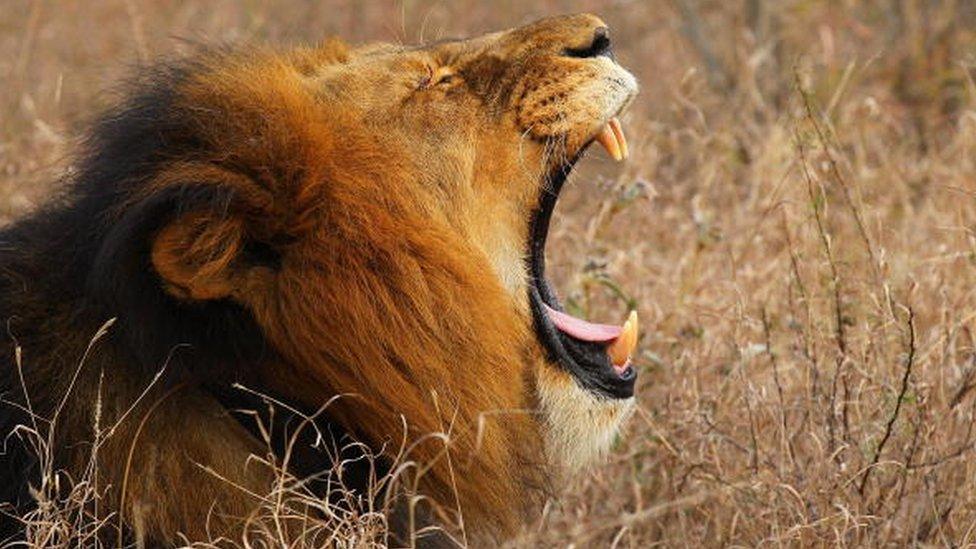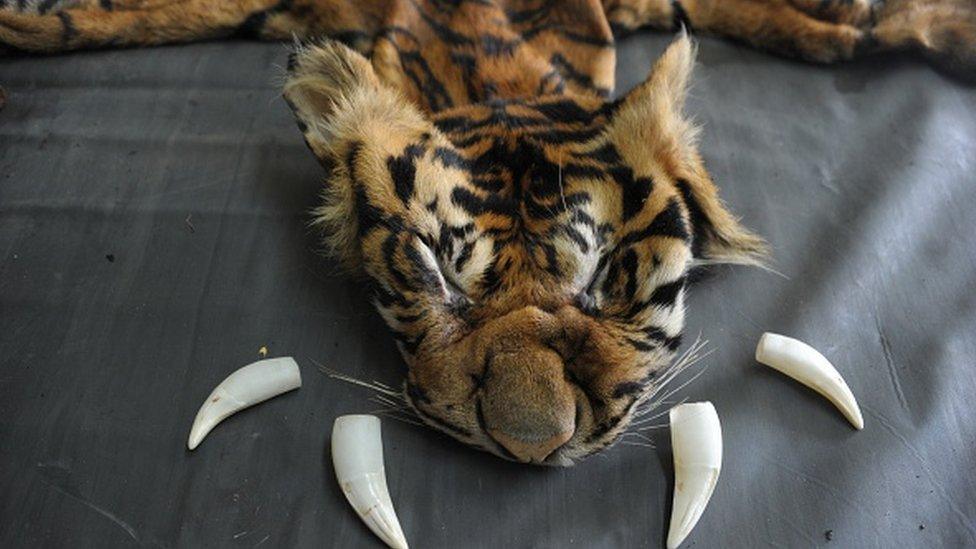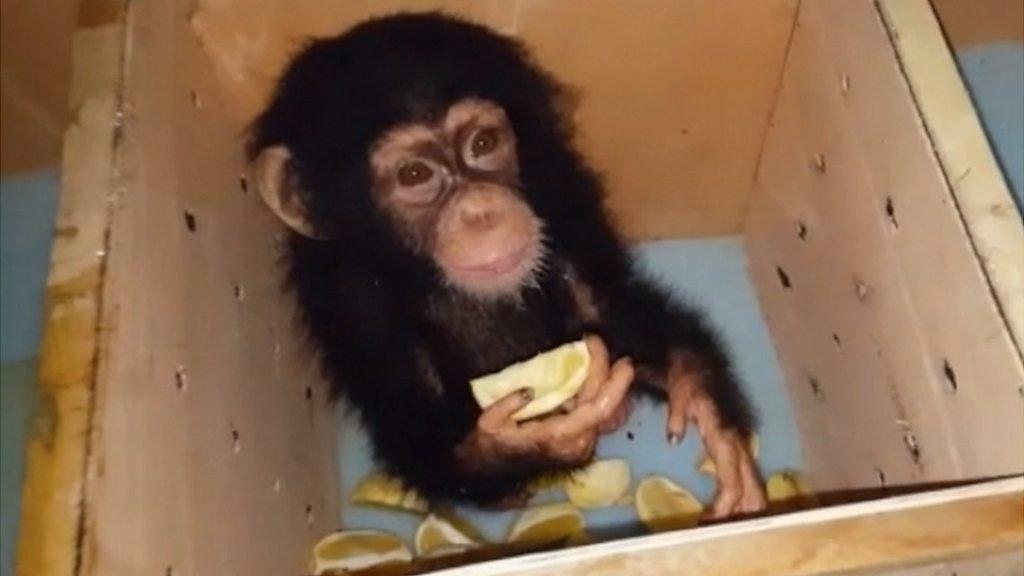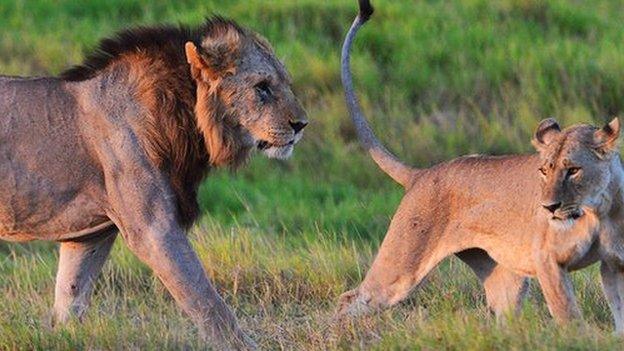Lion parts 'sold as fake tiger products' in Asia
- Published

Trade in bones and other parts of lions faked as tiger products is thriving in Chinese and South East Asian markets, a leading wildlife group says.
China's ban on the sale of tiger products has led to unscrupulous traders substituting them with lion parts, the UK-based Environment Investigation Agency (EIA) said.
South Africa is the largest exporter of lion parts to Asia, it added.
EIA is pushing for the trade to be banned, saying it encourages poaching.
It released its report, external as a meeting of the Convention on International Trade in Endangered Species (Cites) begins in Switzerland.
Cites allows limited trade on body parts of lions bred in captivity.
The South African government last month announced an export quota of 800 skeletons, causing concern among conservation organisations.
The EIA said that between 2005 and 2015, South Africa exported the following to Laos and Vietnam:
755 lion bodies
587.5kg (92st 7lb) of bones, which is roughly the equivalent of 65 lions
54 claws
3,125 skeletons
67 skulls
90 teeth
The group listed five seizure incidents of lion bones sold as tiger products in the past two years.
"In April this year, Chinese police arrested a trader in Nanjing, eastern China, who had purchased what he believed was tiger bone which upon DNA testing was found to be lion bone," it said.
"In May 2016, a suspect was arrested in Vietnam with 680 tiger claws brought into the country from Laos; however, after DNA testing it was later concluded the claws were sourced from lions and not tigers."

Tiger bones are said to have medicinal value
The EIA study said that there were three seizures in China in 2015.
"In May of that year, a criminal network was convicted in Beijing as it was found mixing lion bones with tiger bones and selling them all as tiger bones."
In China and some South East Asian countries, tiger bones are believed to have medicinal values.
There is also a huge demand for wine made from tiger bones in these markets.
"The seizures of lion bones sold as tiger bones that we have listed are all confirmed by authorities of the respective governments," said Debbie Banks, a senior investigator with the EIA.
"Before, there were speculations and now these results of governments' investigations substantiate what was suspected."
Wildlife groups fear that lions will become extinct, and say that their population has fallen by 43% in Africa between 1993 and 2014.
While it increased in Botswana, Namibia, South Africa and Zimbabwe by 12% in this period, population numbers fell in the rest of Africa.
"The other African countries that do not have captive breeding facilities like those in South Africa are concerned that allowing trade on such lion products might adversely affect their wild populations," said Sabri Zain, director of policy with Traffic, an organisation that investigates illegal wildlife trade.
"And what is worrying is that there is no information on the situation of wild lions in the rest of Africa," added Mr Zain.
- Published30 January 2017

- Published25 May 2015
